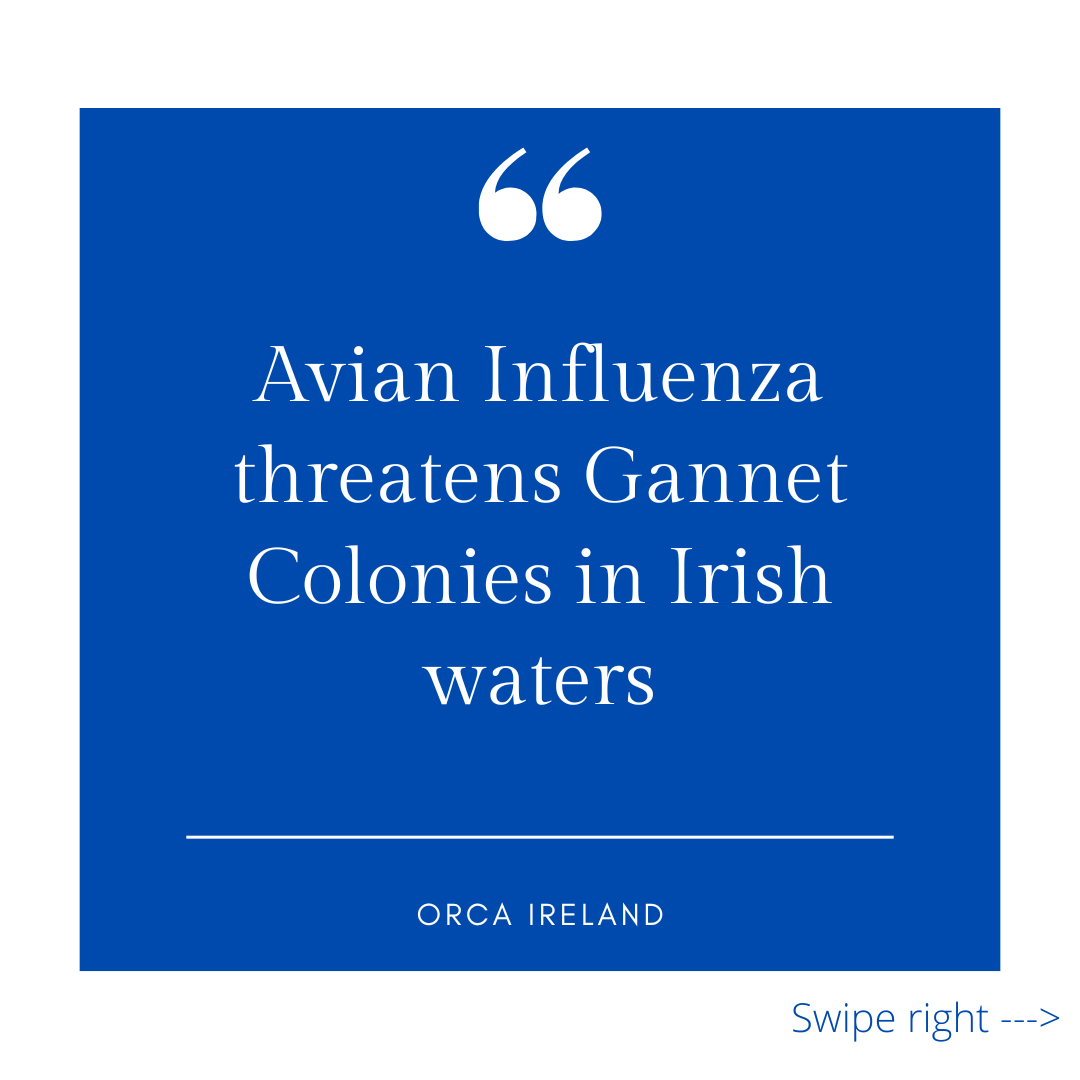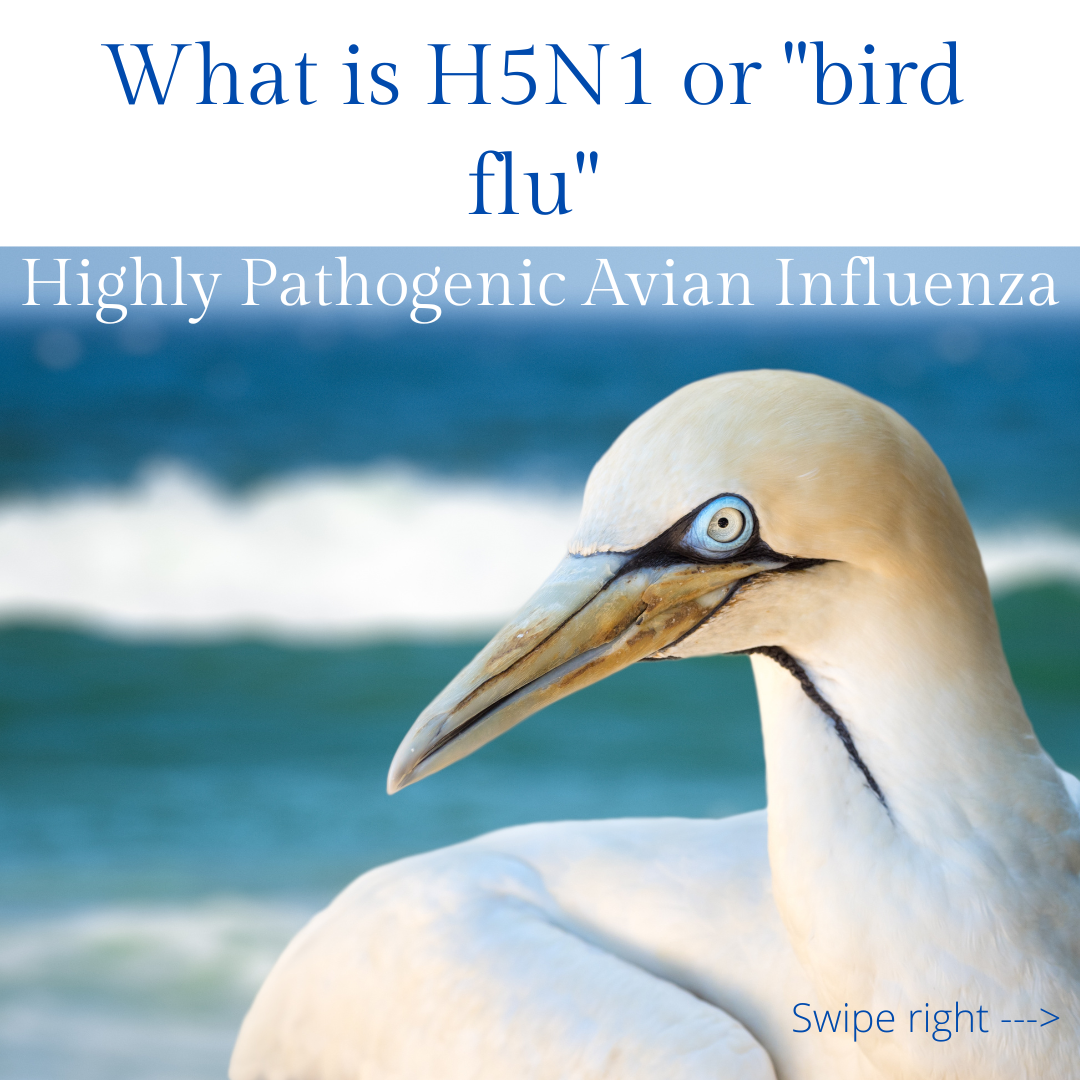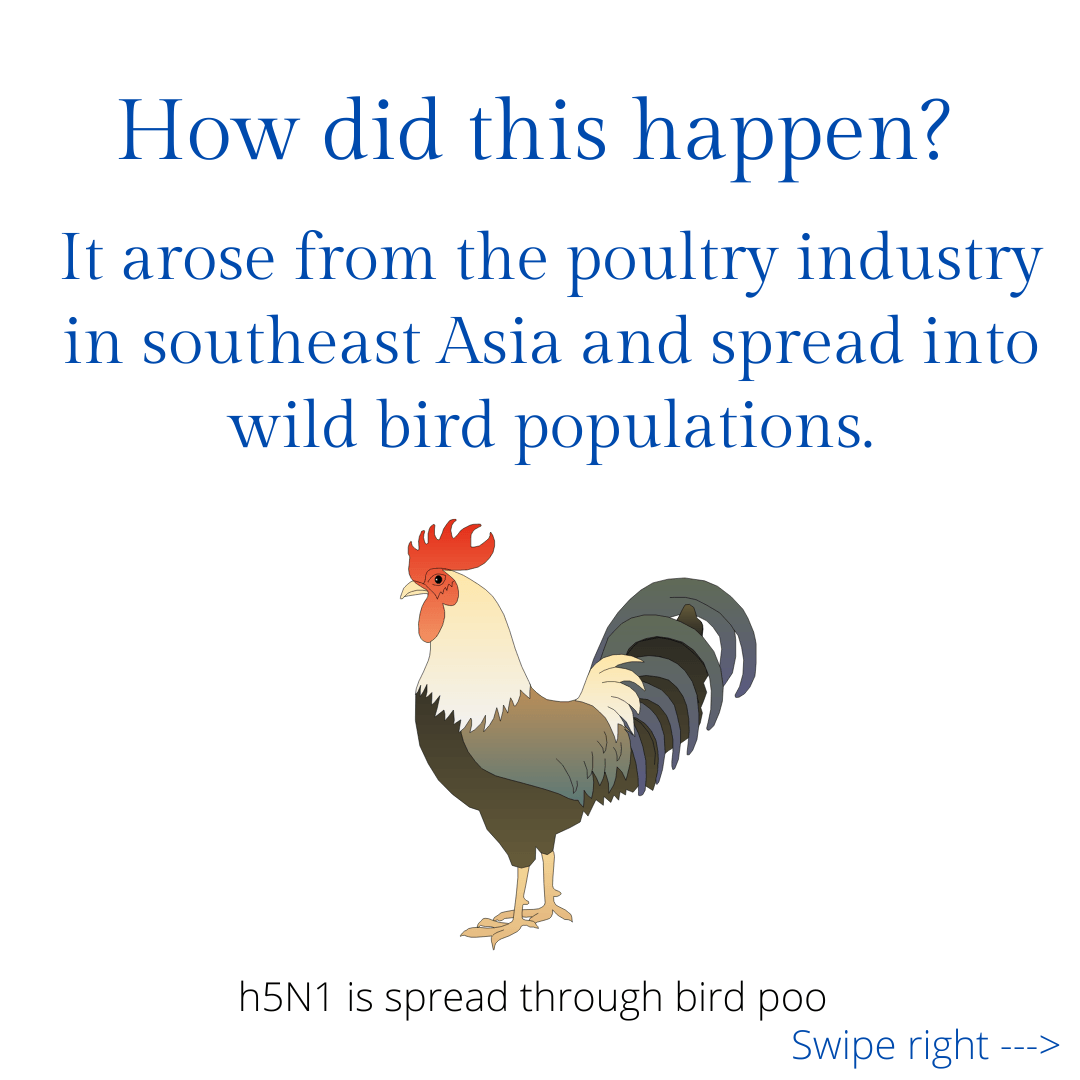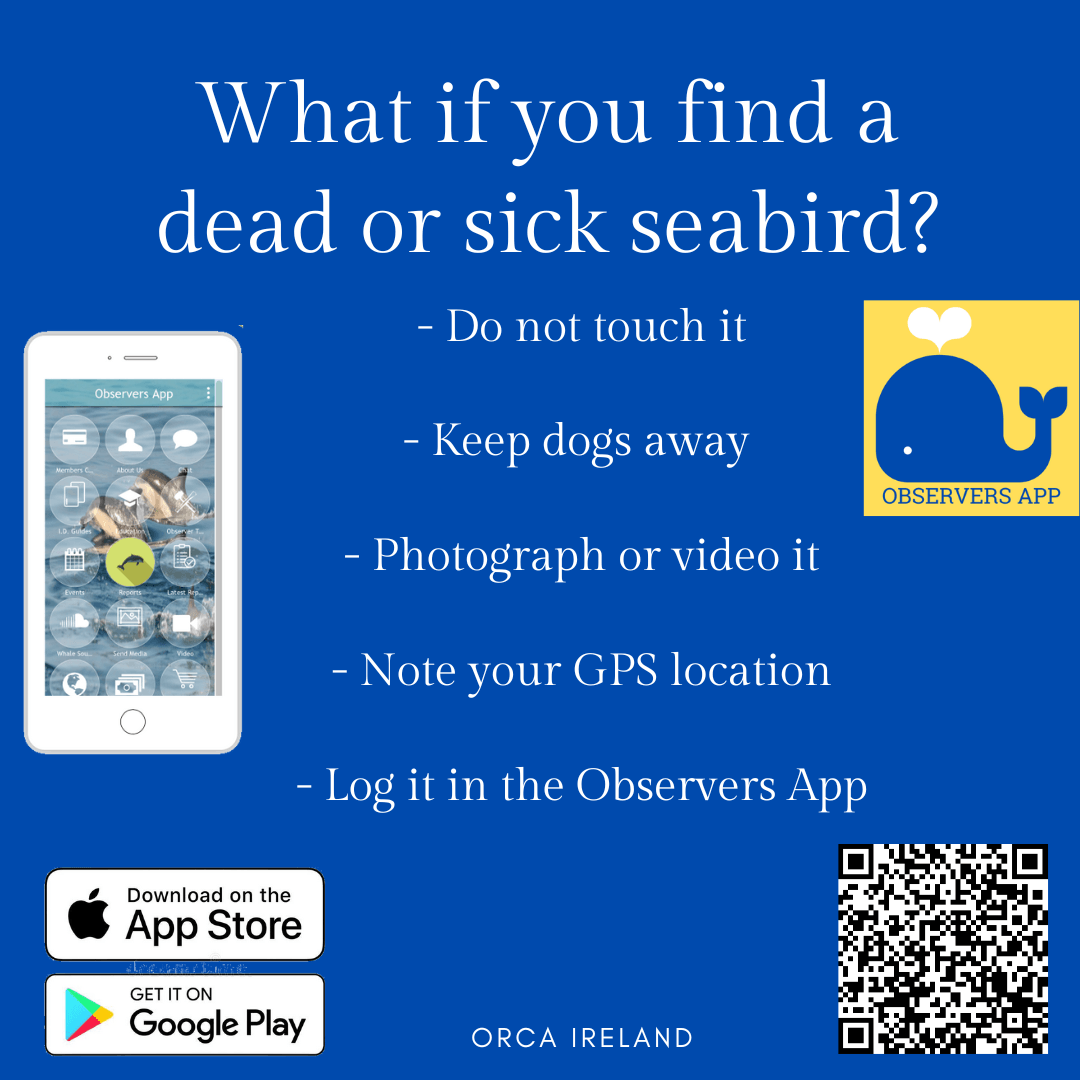Bird Flu is a serious threat Irish Gannet Colonies.
Bird Flu is a serious threat to Irish Gannet Colonies.
ORCA SCI-COMM TEAM | 04 September 2022
ORCA Ireland are deeply concerned about the severe epidemic of bird flu of the H5N1 strain, which is highly pathogenic in cases of pelagic seabirds and has now hit seabirds in Irish waters. According to top scientists at the University College Cork (UCC), avian influenza has now reached Irish Gannet colonies. Recent reports from Irish scientists and members of the public have indicated a huge increase in the numbers of dead northern gannets off the Irish coasts. These increases in seabird deaths may be linked to the Highly Pathogenic Avian Influenza (H5N1).
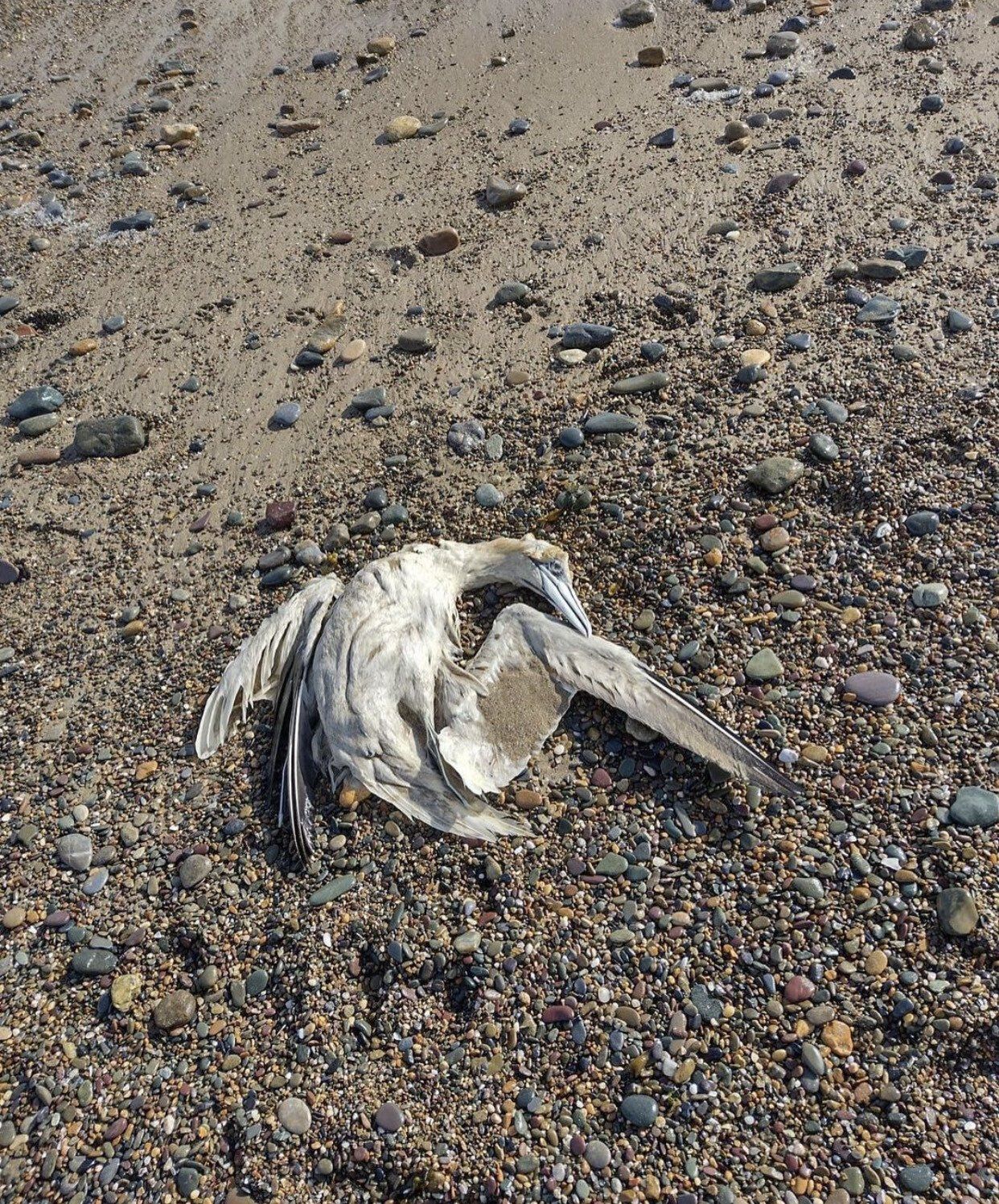
Across Europe and the UK, “bird flu” has been devastating wild seabird colonies. Dozens of dead gannets have been observed on the Island of Grassholm, in Wales, and it is feared thousands more will die over the coming months as birds migrate around the world, according to the RSBP. In Scotland, more than 1,000 dead gannets were found in the world’s largest gannet colony, Bass Rock. On the Isles of Scilly, dead gannets have been showing up since early August. Similar reports have stemmed from Brittany, at Sept-Iles, the largest bird reserve in France.
The first case of H1N5 in wild birds in Ireland was confirmed on November 3rd, in Co. Galway in a Peregrine falcon (Falco
peregrinus) and has since been recorded in 12 counties in Ireland, including; Galway, Limerick, Offaly, Donegal, Roscommon, Tipperary, Wexford, Waterford, Longford, Dublin, Cork and Cavan. Since April 2022, ORCA Ireland have been recording dead gannets killed by bird flu, but now, it appears the out-break is about to peak this winter and is threatening thousands of gannets at breeding colonies, with potential to wipe out local populations.
Looks like highly pathogenic avian influenza has now reached Irish gannet colonies. Loads of dead birds sighted on aerial surveys in the southwest. @uccBEES @MaREIcentre @Dept_ECC @DeptHousingIRL pic.twitter.com/wRqTiLMf3Z
— Mark Jessopp (@GannetGuy) September 4, 2022
ORCA Ireland are asking members of the public to please log any dead seabirds they come across directly to the Department of Agriculture and the Marine's Avian Check here, and in the Observers App here, in our special seabird recording form with a note on if it was alive or dead, and what condition it was in, i.e. what symptoms was it showing if it was alive or if it was decomposed. You can also upload images directly to the Observers App in the send us images tab. Reporting to the Observers App will help us to further investigate and monitor the virus closely, as we are greatly concerned with marine wildlife welfare. Other seabird species such as great black-backed gulls, herring gulls, and puffins have also be impacted by the bird flu virus.
ORCA Ireland are also looking for volunteers to become “Beach Leaders” in their local area and to carry out daily patrols of the beaches in search of dead gannets and other marine wildlife.
We do not recommend bringing dogs with you while on patrol, (although they cannot get sick from the virus, they can become carriers of H1N5), and do not lift or touch the dead or sick seabirds you discover. Simply photograph/video them from a safe distance and document their location as they will need to be removed by local authorities to insure the spread of the virus is limited.
To get involved please email volunteer.orca@gmail.com with subject line - "Beach Leader".
This is heartbreaking. A gannet showing definite signs of avian flu near Inchydoney in West Cork. It’s devastating seabird colonies over in the UK. It would be a disaster if the same thing were to happen at the Skelligs or Saltees. pic.twitter.com/UPncrLVb42
— Christopher O’Sullivan TD (@COSullivanTD) September 4, 2022
Unfortunately avian flu has hit the Waterford coast with several reports of sickly Gannets across the county today. This bird was on Clonea beach this evening. Not easy to watch… @watbirds pic.twitter.com/E6sPuq673z
— Daniel Weldon (@daniel_weldon) September 4, 2022
The Dept. of Agriculture and the Marine also have an AVIAN Hotline which can be reached at 01 6072512. To keep up to date with the latest updates on the Avian Influenza visit the DAFM website here.
SHARE THIS ARTICLE






